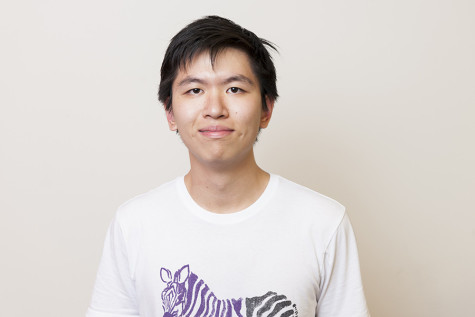Objections to foodies, organic revolution
November 4, 2014
The most prominent foodie voices have certain peculiarities that make them, in a word, distressing. Memoirs from chefs and prominent food aficionados bear titles like “Blood, Bones & Butter” and “Medium Raw: A Bloody Valentine.” Anecdotes in these books detail the simple joys of slitting the throats of pigs, tearing out the offal, then laughing while coated in blood. When coming from renowned chefs and writers like Gabrielle Hamilton, Michael Pollan and Anthony Bourdain, these grisly depictions feel like angry posturing. This is real cooking, they say. It is bloody, manly and gross. The aggressiveness is almost comical. But in an age where everyone watches what they eat and judge others for their food choices, these types of unruly personalities have more cultural holds than perhaps we would like to admit.
These foodies, many of them men who view individuals turning away meat as an insult, would not be so mean if they did not truly believe in their cause. Indeed, the prominent foodie preaches just what is expected: reverence for the home-cooked meal and the organic ingredient. Their entire philosophy revolves around the idea that consumer choices, particularly about what we eat, represent some kind of revolutionary political outcry, the greatest way to change society for the better. The heirloom tomato becomes their lifestyle, their ideology. Consumption becomes the greatest signifier of the self.
This is not a new idea. Consumerism has defined the American lifestyle since the invention of the advertisement. Buyer-side environmentalism, characterized primarily by boycotts and conscientious purchases, has long trumpeted the belief that ethical consumption can change things for the better. It has also been discredited as ineffective. These foodies, posing themselves as challengers of the status quo, are full of it.
Rather, foodie-ism is perhaps best understood as a reactionary movement. It carries a certain wistfulness of an imagined past, one of rolling verdant hills and fresh vegetables and the whole family gathered around the table. Like most retreats into the past, it comes as a backlash to a perceived artificiality of the world we live in now. Processed foods become a metaphor for this artificiality, and so, naturally, fine food and home cooking must be the antidote.
But, as with most reactionary movements, foodie-ism makes dangerous assumptions about the wider world as it hides inside a self-righteous bubble. It ignores the unsustainability of organic production as population growth accelerates. It dismisses the continued environmental impact of producing red meat. It turns a blind eye to the rise of food deserts and the growing inaccessibility of their Eden. Foodies are not the heralds of a bold future. If anything, they are best left alone in their cycle of gluttony.
A version of this article appeared in the Tuesday, Nov. 4 print edition. Email Richard Shu at [email protected].













































































































































Mischa Popoff • Nov 5, 2014 at 11:55 am
What a great article Richard!
I grew up on an organic grain farm in Saskatchewan, and worked for five years as a USDA-contract organic inspector. But I left the organic movement when I realized it was all just a bureaucratic scam designed to propel a political agenda.
Are you planning to write more about the phony-baloney food movement? Please get back to me. I can help you blow the lid off this scam.